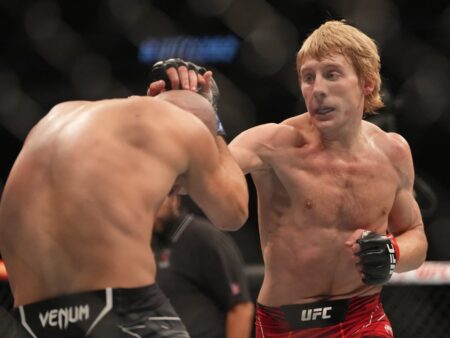British boxing, a sport steeped in tradition and legendary contests, finds itself at a crossroads. According to former world lightweight champion Anthony Crolla, the sport in the UK is teetering on the edge of a “major crisis.” His pronouncement, delivered with the gravity of a man who has not only scaled the heights of the professional ring but now nurtures its future talent, casts a long shadow over the future of the nation`s sweet science.
Crolla, a Mancunian hero who commanded attention in venues like the Manchester Arena and bravely challenged titans such as Jorge Linares and Vasyl Lomachenko, retired in 2019. Now, at 38, he remains deeply embedded in the sport through his gym in Oldham, training the next generation of pugilists. It is from this vantage point, with an intimate understanding of both the elite and grassroots levels, that his concerns emanate.
The Shrinking Stage: A Decline in Domestic Shows
At the heart of Crolla`s warning is the stark reality of a shrinking domestic boxing calendar. “The small hall shows have been absolutely murdered,” he observed, painting a bleak picture of venues that once served as crucial proving grounds for aspiring fighters. These smaller events, historically the lifeblood of British boxing, allowed prospects to hone their craft, build fanbases, and gain invaluable experience away from the glare of main events.
The issue extends beyond these grassroots spectacles. Crolla notes a significant reduction in the overall number of professional boxing shows across the UK. Where once “a few shows every month on a platform” were commonplace, the landscape has dramatically shifted. Major broadcasters like Sky Sports and TNT Sports have largely stepped back from regular professional boxing broadcasts, leading to fewer opportunities and platforms for fighters.
While promotions like Boxxer have found a new home with the BBC, and Queensberry Promotions has joined Matchroom on DAZN, Crolla argues that the consolidation has led to fewer available dates. This scarcity forces many talented fighters, even promising prospects, into a frustrating limbo, scrambling for ring time that was once more readily available. It’s a market adjustment that, while perhaps economically sound for broadcasters, appears to be starving the domestic scene of oxygen.
The Siren Call of the Desert: Overseas Influence
Adding another layer of complexity to the crisis is the undeniable allure of lucrative overseas offers, particularly from places like Saudi Arabia. The financial power of these events has reshaped the global boxing landscape, and British boxing is feeling the ripple effect.
Crolla points to a phenomenon where bouts that could easily headline major UK shows are now relegated to undercards of mega-events in the Middle East. He cites examples from recent Usyk-Fury undercards and the Beterbiev-Bivol bill, where fights like Peter McGrail vs. Rhys Edwards, Johnny Fisher vs. Dave Allen I, and Fabio Wardley vs. Frazer Clarke (rematch) all took place far from British shores. “You’re seeing five brilliant fights coming from Saudi, but what you’re also seeing there are five headliners, which could potentially be five big UK shows,” Crolla lamented.
This trend, while providing unparalleled exposure and purses for a select few, comes at a cost. It effectively siphons off premier talent and compelling matchups, denying the British public and, crucially, the domestic infrastructure, the excitement and revenue these events would generate. One might muse that while the desert sands glow with big-money bouts, the hallowed halls of British boxing are left to gather dust, their potential headliners exported for foreign consumption.
The Unsung Heroes: Small Promoters and Their Struggle
Amidst this challenging climate, Crolla paid tribute to the dedication of smaller promoters like Black Flash, Steve Wood, and Kevin Maree. These individuals, operating on shoestring budgets far removed from the lavish backing of overseas entities, are battling valiantly to keep the wheels of British boxing turning.
Their struggle is profound: they rely heavily on fighters selling tickets and securing local sponsorships. Often, the promoters themselves make little to no profit. “That’s just the truth,” Crolla affirmed, highlighting their almost altruistic commitment to providing opportunities for fighters. They do it not for financial gain, but to “get the lads out” – to give young boxers the chance to compete, learn, and progress. Their efforts underscore the passion that still exists at the sport`s core, even as the professional ecosystem around them falters.
A Call to Action?
Anthony Crolla’s warning is not merely an observation; it is a call to reflection. The crisis he describes is multi-faceted, stemming from shifts in broadcasting, the globalization of boxing`s financial power, and the consequent pressure on the domestic circuit. Without a robust local scene, the pipeline of talent that has historically fed British boxing`s success could dwindle. The future of champions, headline acts, and the vibrant atmosphere of fight nights across the UK depends on how this crisis is addressed.
The question remains: can British boxing adapt to this new reality, or will the “sweet science” in its traditional home increasingly become a casualty of the sweetest deal elsewhere?








